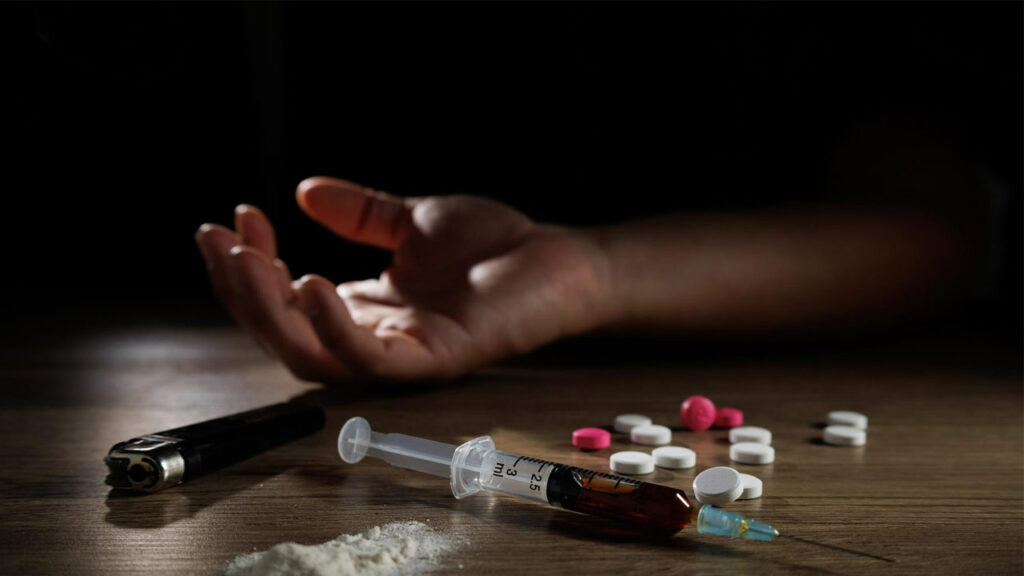Opioid addiction has become a major public health crisis in recent years, with the number of opioid-related deaths increasing every year. While the causes of opioid addiction are complex and multi-faceted, it is crucial to understand all of the contributing factors to effectively prevent and treat opioid use disorder. One often overlooked aspect of opioid addiction is the connection between dental health and opioid use.
Thesis Statement
The connection between dental health and opioid addiction is often overlooked, yet plays a significant role in the development and perpetuation of opioid use disorder.
Background
Definition of Opioid Addiction
Opioid addiction, also known as opioid use disorder, is a chronic condition characterized by persistent and compulsive use of opioids despite the negative consequences. Opioids are a class of drugs that are commonly prescribed for pain management and include drugs such as fentanyl, oxycodone, and hydrocodone.
Overview of Common Causes of Opioid Addiction
Several factors can contribute to the development of opioid addiction, including:
- Chronic pain
- Mental health conditions
- Social and environmental factors
- Genetics
- Lack of access to alternative pain management treatments
Importance of Addressing Dental Health in Preventing and Treating Opioid Addiction
Dental health is often overlooked in discussions about opioid addiction, but it plays a significant role in both the development and perpetuation of opioid use disorder. Chronic dental pain is a common trigger for opioid use and can lead to a cycle of dependence and addiction. By addressing dental health, healthcare providers can help to prevent the development of opioid addiction and support those in recovery.
The Connection Between Dental Pain and Opioid Addiction

The Role of Untreated Dental Pain as a Trigger for Opioid Use
Chronic dental pain is a common trigger for opioid use and can lead to a cycle of dependence and addiction. When dental pain is left untreated, individuals may turn to opioids as a form of self-medication. Over time, the body becomes dependent on opioids, leading to a cycle of dependence and addiction.
The Use of Opioids as a Form of Self-Medication for Dental Pain
Many individuals turn to opioids as a form of self-medication for dental pain. They may believe that taking opioids is a quick and easy solution to their dental pain, but in reality, it can lead to a cycle of dependence and addiction.
The Cycle of Dependence and Addiction that Results from Using Opioids for Dental Pain
When opioids are used as a form of self-medication for dental pain, the body becomes dependent on the drug. This leads to a cycle of dependence and addiction, in which the individual continues to use opioids despite the negative consequences. Over time, the body requires higher doses of the drug to achieve the same level of pain relief, leading to a vicious cycle of addiction.
Dental Health Interventions for Opioid Addiction Treatment
The Benefits of Addressing Dental Health in Opioid Addiction Treatment
Addressing dental health can have a significant impact on the treatment of opioid addiction. By treating the underlying cause of dental pain, individuals in recovery can reduce their reliance on opioids and increase their chances of long-term recovery.
Examples of Dental Health Interventions, such Dental Pain Management and Addiction-Focused Dental Treatment
Several dental health interventions can help to treat opioid addiction, including:
- Dental pain management
- Addiction-focused dental treatment
- Comprehensive dental exams and cleanings
- The Role of Dental Professionals in Idented Use Disorder in Their Patients
Dental professionals play an important role in identifying and treating opioid use disorder in their patients. They can screen for signs of opioid use and refer patients to appropriate addiction treatment resources. Additionally, they can educate patients about the dangers of using opioids for dental pain and provide alternative pain management options.
healthcareDental health is an important aspect of overall health and well-being. Take control of your dental health with our top-quality dental health care products. Say goodbye to painful and inconvenient dental issues and hello to a brighter, healthier smile.
These products are designed with the latest technology and are made from premium materials, ensuring that you get the best results. Whether you’re looking for a solution for sensitive teeth, gum health, or just want to keep your smile sparkling, our dental health care products have got you covered.
Tired of hiding your smile due to yellowing, stained, or sensitive teeth?
ProDentim is here to help. This advanced formula whitens and strengthens your teeth, while also reducing sensitivity and promoting oral health. Say goodbye to expensive and painful dental treatments, and start enjoying a bright, confident smile with ProDentim.
Click Here to Try ProDentim now and see the results for yourself!
Struggling with tooth sensitivity, gum problems or bad breath?
Dentitox Pro is the solution you need. This natural, effective formula helps to clean and strengthen your teeth and gums, giving you a brighter, healthier smile. Dentitox Pro is made with the finest ingredients and is free from harmful chemicals, making it safe and gentle for everyday use. Say goodbye to pain and embarrassment, and start enjoying a confident, beautiful smile with Dentitox Pro.
Click Here to Order now and get 20% off your first purchase!
Click Here for Professional Teeth Whitening
FAQ About the Connection Between Dental Health and Opioid Addiction
What is the connection between dental health and opioid addiction?
Dental health is often overlooked in discussions about opioid addiction, but it plays a significant role in both the development and perpetuation of opioid use disorder. Chronic dental pain can lead individuals to self-medicate with opioids, leading to a cycle of dependence and addiction.
Why is dental health often overlooked in opioid addiction treatment?
Dental health is often overlooked in opioid addiction treatment because it is not typically seen as a primary factor in the development of opioid use disorder. Additionally, many individuals may not realize the connection between their dental health and their opioid use.
How can dental health interventions help in the treatment of opioid addiction?
Dental health interventions, such as dental pain management and addiction-focused dental treatment, can help to treat opioid addiction by addressing the underlying cause of dental pain and reducing the individual’s reliance on opioids.
How can dental professionals play a role in addressing opioid addiction?
Dental professionals can play a role in addressing opioid addiction by screening for signs of opioid use, referring patients to appropriate addiction treatment resources, and providing alternative pain management options.
What steps can be taken to prevent opioid addiction related to dental pain?
Steps that can be taken to prevent opioid addiction related to dental pain include regular dental check-ups, prompt treatment of dental pain, education about the dangers of using opioids for dental pain, and providing alternative pain management options.
The connection between dental health and opioid addiction is often overlooked, yet plays a significant role in the development and perpetuation of opioid use disorder.
By addressing dental health in opioid addiction treatment, healthcare providers can help to prevent the development of opioid addiction and support those in recovery.
Dental professionals have an important role to play in identifying and treating opioid use disorder in their patients. It is crucial to consider dental health in the fight against opioid addiction to effectively prevent and treat opioids.

